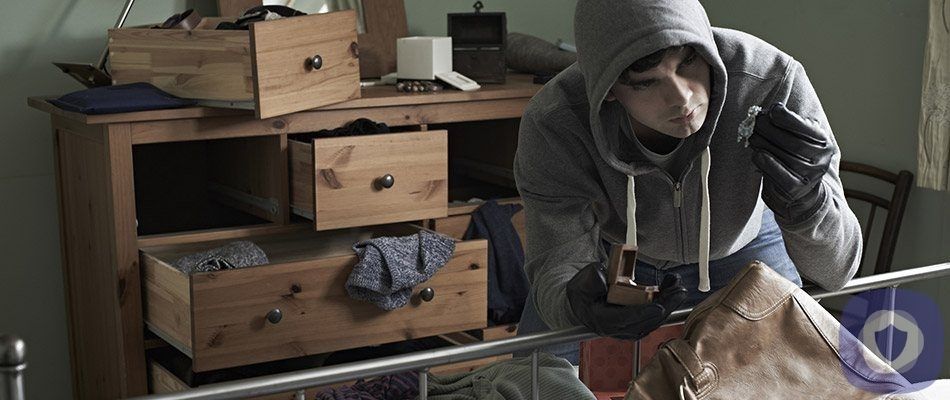My house was robbed. It’s a sentence no one really wants to say out loud or type into Google.
If it’s happened to you, you’re not alone. The United States Department of Justice recorded more than 2.5 million home burglaries in 2017 (the most recent date for which data is available), an estimated 10 for every 1,000 households in the country.
So take a breath. You can get through this and take the power back from the intruders. Now let’s take a look at what you need to do when someone breaks into your house.
Find safety.
It’s tempting to start running around the house, checking to see what’s missing or (hopefully) still there. Don’t! If you just came home, you may not know if the perpetrator is still inside, and safety is paramount. It’s best to head to a neighbor’s home or even back to your vehicle.
Find your pets.
A home invasion can be traumatizing for our four-legged friends. Grab Fido and Fluffy, and make sure they’re OK.
Don’t touch anything.
If you must enter the home—maybe your pup is inside—don’t touch anything. Your home is now a crime scene, which means you could disturb evidence.
Call the police.
Once you and any other family members or pets are in a safe place, make a 911 call. The responding officers will be able to ensure the burglar is gone and investigate how they entered and record any damage or theft. Don’t forget to ask them how to get a copy of their report; you’ll need it for any insurance claims.
Call your insurance company.
This should be done within 24 hours of the break-in, but you don’t have to wait for your agent to get back into the office. Check your homeowner’s or renter’s policy for a 24-hour service line. The insurer can advise you on what you’ll need to collect to make your claim, from the police report to photos of any home damage to lists of missing items.
Record what happened.
As soon as you get the all-clear from the police to wander through your home, get the evidence your insurance company will need to pay out a claim:
- Take photos of any damage such as broken windows or door hinges.
- Write a comprehensive list of missing or damaged items.
Handle your finances.
If the thieves took off with checkbooks, credit cards, or any personal or financial information, you’ll want to mention that fact to the police. You’ll also need to call your financial institutions to cancel credit cards and put warnings on your accounts to prevent fraudulent charges or withdrawals.
Secure the house.
Dealing with a smashed window or a door busted off its hinges is an obvious first step, but don’t forget to keep your receipts for any repairs. You may be able to get them reimbursed by your insurance company.
You’ll also want to do a security inventory to address any vulnerabilities to prevent future break ins. New door locks are a wise investment, and a new security system could help scare off any would-be thieves in the future.
Call the neighbors.
Thieves often return to the same neighborhood, so a call to let folks around you know what happened can make everyone more secure.
Find someone to talk to.
Everyone handles a break in differently, but if you’re feeling uneasy or struggling to move on after the burglary, there’s help out there. The folks at the Victim Connect Resource Center offer a free hotline—855-4-VICTIM (855-484-2846)—and can make the connection with crime victim support resources in your area.
After the dust settles, consider making changes to your home security.
Once the police report is in and the insurance claims are underway, it’s time to do a more thorough security evaluation. Research shows as much as 60% of burglars will head for the hills if they notice a security system on the premises, so now might be the time to invest in one of your own.
There are plenty of options out there—from a DIY security system to calling in pro installers—to make thieves think twice about messing with your home ever again.
This article has been reviewed and approved by Officer Banta.

Officer Banta is the official SecurityNerd home security and safety expert. A member of the Biloxi Police Department for over 24 years, Officer Banta reviews all articles before lending his stamp of approval. Click here for more information on Officer Banta and the rest of our team.

